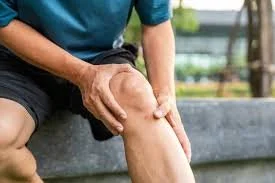Dealing with Chronic Knee Pain: Unmasking the Mind-Body Connection
Chronic knee pain affects millions worldwide, often leaving sufferers feeling betrayed by their own bodies. However, the pain isn’t always a straightforward reflection of physical damage. Conditions like knee osteoarthritis (KOA), meniscus tears, or tendonitis can cause discomfort, but the brain’s role in amplifying pain signals complicates the picture. For instance, in knee osteoarthritis, cartilage breakdown triggers inflammation, yet the intensity of pain often doesn't correlate with the extent of joint damage. Psychological factors, such as stress or anxiety, and social factors, like reduced activity due to fear of pain, can heighten the perception of discomfort, making it seem like the body is "lying."
The Brain's Role in Chronic Knee Pain
The brain's involvement in persistent chronic knee pain is critical. When pain persists, the nervous system can enter a state of central sensitization, where it becomes hypersensitive, amplifying even minor stimuli into severe pain. This process involves changes in brain regions like the anterior cingulate cortex, which processes both pain and emotions. Studies show that negative emotions, such as depression or fear of movement, can intensify pain perception by strengthening neural pain pathways. This cycle explains why some people experience debilitating pain despite minimal structural damage, highlighting the need for a holistic approach to treatment from a skilled knee physio.
Physical Causes and The Knee Physio Solution
Common physical causes of chronic knee pain include knee osteoarthritis, where joint cartilage erodes, and biomechanical issues, like weak quadriceps or tight hamstrings, which destabilize the knee. Obesity is another significant contributor, as excess weight increases joint stress—each extra pound adds roughly four pounds of pressure on the knees during movement.
Seeking help from a dedicated knee physio is crucial. Physical therapy focusing on strengthening surrounding muscles and improving joint alignment can significantly reduce pain and enhance mobility. Unlike painkillers, which only mask symptoms, these interventions address root causes, offering longer-term relief without the risks of dependency, and are a core part of managing knee osteoarthritis.
Holistic Nonpharmacological Treatments
Nonpharmacological treatments are gaining recognition for managing severe chronic knee pain effectively. Cognitive behavioral therapy (CBT) helps patients reframe negative thoughts about pain, reducing its emotional amplification. Acupuncture, while not universally effective, has shown promise in trials for reducing pain by stimulating endorphin release and calming overactive pain pathways. Low-impact exercises, such as swimming or cycling, approved by your knee physio, improve joint function without excessive strain. Assistive devices like knee braces or orthotics can also support proper alignment, further alleviating discomfort and improving quality of life.
Understanding that chronic knee pain is a complex signal, not a deception, empowers patients to take control. A comprehensive treatment plan combining medical evaluation, knee physio treatment, psychological support, and lifestyle changes can address both the physical and emotional aspects of pain, especially in conditions like knee osteoarthritis. Consulting a healthcare provider to customize this plan ensures safety and efficacy. By addressing the interplay of body and mind, individuals can break the pain cycle, regain mobility, and live more fully, unmasking the truth behind their body’s signals.

